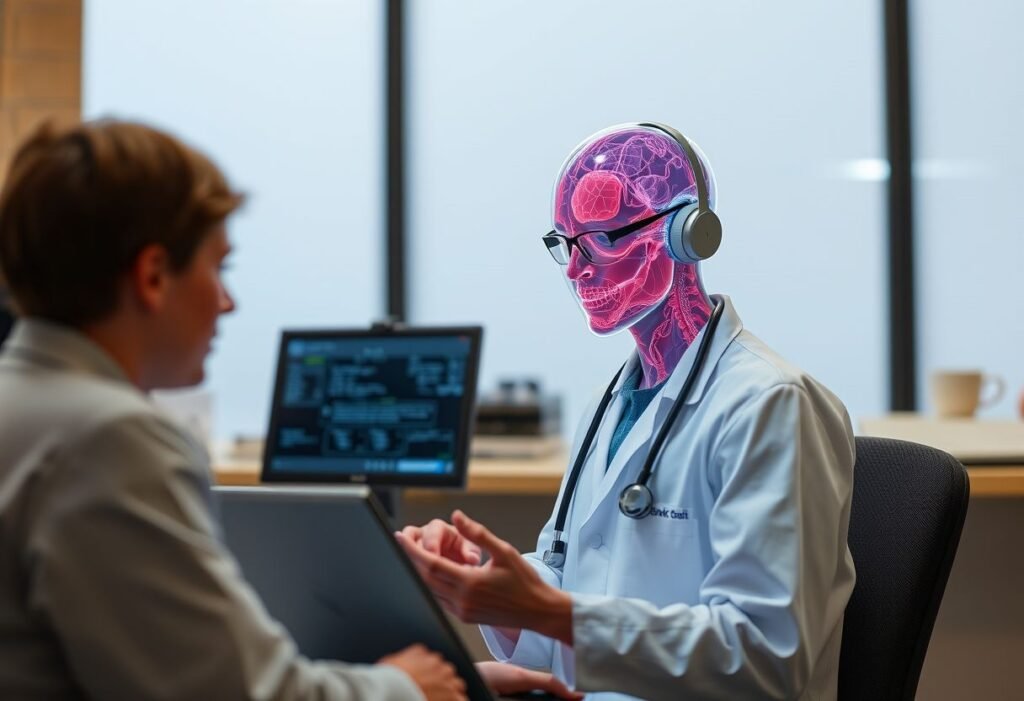In the evolving landscape of healthcare, the role of artificial intelligence in diagnostics has garnered significant attention. Recent studies have raised concerns regarding the accuracy of AI tools like ChatGPT in diagnosing medical conditions. This article delves into these findings and underscores the indispensable value of human expertise in healthcare.
Assessing the Diagnostic Accuracy of AI
ChatGPT’s ability to diagnose medical conditions has come under scrutiny, revealing a diagnostic accuracy rate of just 49%. This statistic highlights the limitations of AI when it comes to interpreting complex medical information. While AI can assist in generating reports and analyzing data, it clearly lacks the comprehensive understanding that human healthcare professionals possess. The implications of relying solely on AI for medical guidance can be severe, potentially leading to incorrect diagnoses and treatment plans. Therefore, it is critical for users to remain skeptical and seek additional, professional medical opinions before acting on AI-generated information.
The Importance of Human Intervention
Despite advancements in artificial intelligence, the findings indicate that human intervention remains vital in healthcare settings. Medical professionals bring years of training and experience that AI cannot replicate. They not only understand the nuances of human anatomy and health but also the social and psychological factors influencing a patient’s condition. This human element fosters trust and a deeper understanding of patient needs, which AI lacks. Thus, while AI tools can be beneficial for preliminary assessments, treating them as substitutes for human diagnosis is ill-advised.
Combining AI and Medical Expertise
Integrating AI tools like ChatGPT into healthcare can be beneficial if used wisely. Healthcare providers can leverage AI’s data-processing abilities while retaining the crucial decision-making capabilities of human professionals. In doing so, they can enhance efficiency and improve patient outcomes. This synergy between AI and human expertise can lead to more accurate diagnoses and personalized treatment plans tailored to individual patient needs. However, this approach requires robust ethical considerations and training to ensure AI is used effectively and responsibly.
Future Implications for Healthcare
The future of healthcare could see a significant transformation through technology. However, as AI technologies continue to evolve, monitoring their impact on medical diagnosis will be essential. Ongoing research and validation will ensure that AI tools improve in accuracy and reliability. By understanding current limitations, stakeholders can develop strategies to utilize AI effectively, ensuring it supplements but does not replace the essential components of patient care.
Building Trust in AI Diagnostics
An important aspect of incorporating AI into healthcare involves establishing trust with patients. Transparency about AI capabilities and limitations is essential to ensure that patients understand which tools are driving their care. Educating patients on the role of AI in diagnostics fosters confidence and helps them make informed decisions about their health. This transparency not only serves to demystify AI but strengthens the patient-provider relationship, enhancing overall satisfaction and outcomes.
The Path Forward: A Balanced Approach
The optimal path forward in healthcare must strike a balance between embracing innovative technologies and upholding the human touch in medical practices. AI will undoubtedly play an increasingly prominent role, but it should always complement, not replace, trained healthcare professionals. As this field of technology grows, continuous dialogue among researchers, practitioners, and patients will be required to navigate the ethical concerns and practical challenges involved in AI integration.





















